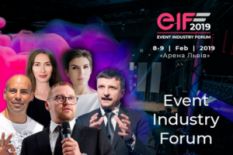Stuart Logan
Chief HR Officer, SoftServe
 Which of the selection criteria are the most valuable now for candidates from your perspective: education, experience, skills, IQ, EI, personal characteristics? What are the global trends? What does employer value the most?
Which of the selection criteria are the most valuable now for candidates from your perspective: education, experience, skills, IQ, EI, personal characteristics? What are the global trends? What does employer value the most?
The set of most valuable skills depends on the type of role you're looking for. Education is critical during the first years in one's career. Experience, IQ, and skills are important for knowledge workers like data scientists or subject matter experts, as well as business analysts who are focused on specific areas.
I tend to be involved mostly in hiring leadership level associates and am focused on two main things – the professional experience to confirm that a person has the background to do the job, and the emotional intelligence to ensure that he/she can successfully adapt to and navigate change. High EI is linked to healthy relationships with others which is critical for managers and leaders.
We pay close attention to emotional intelligence here at SoftServe as a global multicultural company because it enables our managers and leaders to understand and synergistically build a strong corporate culture from a range of different cultural norms.
How to create a corporate culture that supports changes, innovations and helps to achieve business goals effectively?
Corporate cultures are created over time, not overnight. When I joined SoftServe, I was pleased to see a culture that is so highly focused on people development as a core competitive advantage. We put significant efforts in creating environments that encourage people to collaborate and work together.
Working with our executive team and other leaders, we identified areas to shift SoftServe’s culture to boost innovation. In collaboration with EY, we conducted internal research to measure the corporate culture, understand what people loved about SoftServe, and where they saw new opportunities for change. We used this feedback as the basis for building a corporate value system with four core elements: synergy, opportunity, fearlessness, and trust. Synergy and opportunity were already deeply embedded in the DNA of the company – we synergize to achieve outstanding results that are greater than the sum of our efforts alone, and we provide opportunities for all associates to grow, develop, and build their own success.
At the same time, the culture of the company was one of consistently delivering on commitments, and over time this had crystallized into a strong aversion to risk. Rapid growth coupled with a respective increase of customers operating on global markets meant that we needed to make sure we meet global standards and incorporated best practices. We showed no fear in supporting and driving changes while building trust between associates, managers, customers, and SoftServe as a company to grow together more effectively.
Last year, we introduced our Code of Conduct and linked it to the performance review system for leaders to further embody the values of the business – aiming to recognize and reward those that live by these values.
Our Innovation Platform was initially launched internally and was a highly effective tool that helped the company focus on innovation and increase employee engagement. Recently, our HR team set an objective for all associates to improve the onboarding program. We have received lots of different ideas and insights from our colleagues around the globe – leading to 28 individual improvements that were implemented in our business through Employee Journey Mapping. The Innovation Platform can be deployed for any business goal to help large-scale organizations cultivate an innovative culture with strong support from the company’s employees.
We also use a distinctive type of goal setting methodology, known as Objectives and Key Results (OKRs) that differ from traditional goal planning. The goals are set by teams and are open, searchable, and measurable by all associates. This removes the issue of low balling targets to overachieve, and can help correct any imbalance in results while improving team collaboration.
What are the main factors and tools that affect human resources management today?
Each company has a history, product or service, culture or market that is constantly changing, and there’s no one solution that fits all. I’ve been working in technology for 20 years and every company faces different challenges. However, there are some common issues - for example, the way you attract the best talent to join the company, integrate fairness into working conditions, and invest in people’s value and potential at the appropriate level.
The core focus in HR today is creating the connected, collaborative enterprise. A major driving force that is impacting our workplaces and workforce is the Internet of Things (IoT). At work, we invent new opportunities to create a highly connected and collaborative enterprise. We are leveraging the power of IoT to implement workplace improvements.
While these megatrends are not entirely new to the world of work and HR, they have certainly not been addressed to the extent they need to be to ensure people can maximize their contributions to organizations while achieving more meaningful levels of professional and personal growth and success.
Olena Kropivianska
Deputy Board Chairman, EVP HR, PJSC “Ukrnafta”
 Which of the selection criteria are the most valuable now for candidates from your perspective: education, experience, skills, IQ, EI, personal characteristics? What are the global trends? What does employer value the most?
Which of the selection criteria are the most valuable now for candidates from your perspective: education, experience, skills, IQ, EI, personal characteristics? What are the global trends? What does employer value the most?
We are not just looking for employees, we need people who can perform a certain job effectively. That is, the primary criterion for selection is the work itself as well as the knowledge and practical skills it requires. And the more difficult the work is, the more complex this set of professional skills should be. Case assignments are a simple and effective method of assessment because they show a potential candidate in action. Sometimes we do not wait for the correct solution, watching the way a person thinks. It is equally important to consider how developed the candidate's behavioral competencies required for the job are.
For example, attention to detail, customer orientation, ability to respond to stressful situations, etc. The most common recruitment mistake is to demand more than necessary from candidates, hoping that this will inspire them. But every person strives for development so the job should provide room for professional growth. The most difficult thing is to find a person who would share the company's corporate culture. The one that will enrich the team not only with knowledge and skills, but at least will not disturb harmony and communication within team. At most, this person will amplify them.
How to create a corporate culture that supports changes, innovations and helps to achieve business goals effectively?
Build dialogue to give people an opportunity to express themselves in any way acceptable to them, either anonymously or openly, publicly or tete-a-tete. What is important is to guarantee that people are safe to speak.
Keep the style: if we strive for a sincere and open dialogue, we reduce the number of reports, declarations and notations. Instead we make communication simple, brief and, most importantly, to the point.
There are plenty of tools and your choice depends on the size of the company, corporate culture and, of course, the budget.
What are the main factors and tools that affect human resources management today?
The world has changed a lot, and standard approaches to HR management have seriously transformed over the past 15 years. In the time of total change and transformation, businesses badly need their staff to have new competencies such as flexibility and adaptability, ability to learn quickly, to react fast to stress and regain the balance, that is, to be able to make decisions in a balanced and rational way.
There is a particularly interesting term for me: "intellectual humility" or "intellectual modesty". This is an incredibly interesting concept which is well worth researching. We do not know everything and even if we are confident in our knowledge, we must be able to perceive new information, HEAR, even if what we heard does not align well with our established views and ideas. Therefore, we must always continue to analyze, think critically and change our mind. The world transforming at a crazy speed is a factor that affects HR management.
Nataliia Lukash
Head of HR Directorate, OTP Bank Ukraine
_opt.jpeg) Which of the selection criteria are the most valuable now for candidates from your perspective: education, experience, skills, IQ, EI, personal characteristics? What are the global trends? What does employer value the most?
Which of the selection criteria are the most valuable now for candidates from your perspective: education, experience, skills, IQ, EI, personal characteristics? What are the global trends? What does employer value the most?
Recently, a growth mindset became the flagship of any HR initiative. The existing recruitment models rapidly become outdated while requirements to candidates constantly change, depending on business needs. Priority is now given to unique human skills: communication, problem solving and emotion recognition. We have shifted our priorities in staff recruitment and are now paying equal attention to a candidate's professional skills and mindset.
We created a special training program and together with the bank's CEO we taught our managers how to look for a growth mindset during an interview, that is to find out that the candidate is ready to grow at the pace of the company while remaining successful and happy. We are exploring candidates' potential based on the examples of their behavior. After the interview, you get a distinct portrait of a person and you realize whether he or she is ready to take responsibility for the situation or would start pointing fingers, ready to take the initiative or would wait until someone pushes for a solution to the problem.
How to create a corporate culture that supports changes, innovations and helps to achieve business goals effectively?
The most difficult task today is to provide important information to employees. The information space is so packed that standard communication methods do not work. I will mention some non-standard channels that we use. CEO blog: every Friday we get the latest news right from the source. Each employee can comment on the publication or put questions to the CEO. It is important that the CEO writes the blog on his own. There is a frank dialogue about current projects, our mistakes and plans for the future. We also run an unofficial Facebook page. Our goal was to create a community in which everyone would feel comfortable. Today it is a truly efficient tool that allows us to learn more about each other and share important news. In addition, this channel helps us shape the company's code of values and roll out non-standard solutions.
What are the main factors and tools that affect human resources management today?
Digitalization, automation, big data... In recent years, these concepts have been high on the agenda of the HR community. All of this is very important but mundane already. Apart from these, another important issue is performance. We all work in team-oriented organizations, use agile approach and are overloaded with current tasks. The challenges we need to address are burnout and ability to focus on the task as well as the team's engagement in the work processes when mail and messengers offer a constant distraction. Will we be able to create a software that will simplify tasks and boost productivity? Will we be able to keep the bar of a working environment that is comfortable for employees? These are the new challenges we are addressing on every day.
Photo: provided by Stuart Logan, Olena Kropivianska, Nataliia Lukash, unsplash.com.









